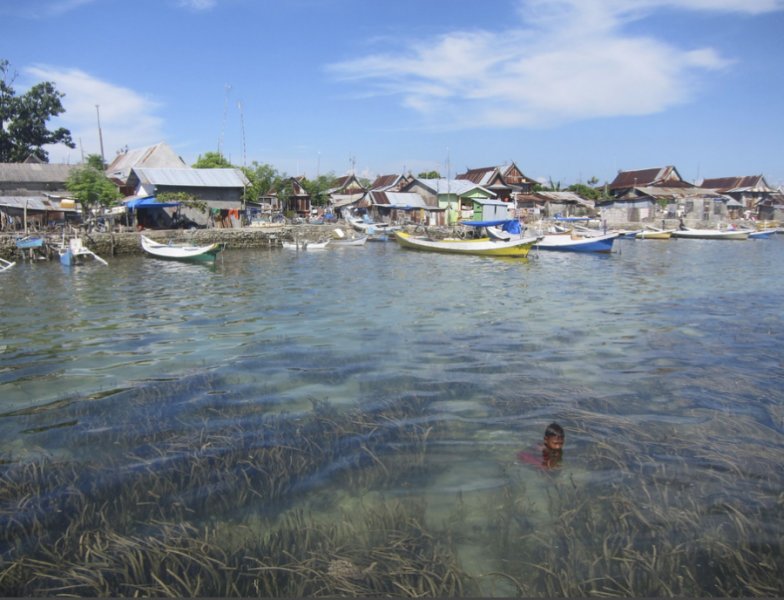11 Dec 2024

Tired Earth
By The Editorial Board

Seagrass meadows -- bountiful underwater gardens that nestle close to shore and are the most common coastal ecosystem on Earth -- can reduce bacterial exposure for corals, other sea creatures and humans, according to new research published in Science Feb. 16.
"The seagrass appear to combat bacteria, and this is the first research to assess whether that coastal ecosystem can alleviate disease associated with marine organisms," said lead author Joleah Lamb of Cornell University's Atkinson Center for a Sustainable Future, where she is a Nature Conservancy NatureNet fellow.
Senior author Drew Harvell, Cornell University professor of ecology and evolutionary biology and an Atkinson Center Fellow, had been running an international workshop and examining the health of underwater corals with colleagues near small islands at Spermonde Archipelago, Indonesia. But after a few days, the entire research team fell ill with dysentery, and one scientist contracted typhoid. "I experienced firsthand how threats to both human health and coral health were linked," Harvell said.
Lamb returned with an international team armed to test the waters. On these small islands freshwater is sparse, surface soil is thin and just off shore the marine environment teems with solid waste, sewage and wastewater pollution. Generally, the islands -- though filled with people -- do not have septic systems.
The group used Enterococcus assays, the U.S. Environmental Protection Agency standard of health risk levels for wastewater pollution in recreational waters, to see whether seagrass meadows influenced bacterial levels. Water samples taken near the beaches exceeded exposure levels by a factor of 10. But, Lamb's team found threefold lower levels of Enterococcus in seawater collected from within seagrass meadows.
"The genetic sequencing work pinpointed the kinds of bacteria -- all in difficult, arduous conditions," said Harvell. "It showed exactly what was in the water. The beautiful oceanside water looked blue-green, but truly it was filled with dangerous pollution -- some really bad stuff in the water close to shore."
While research is beginning to reveal the mechanisms driving bacterial-load reductions in these ecosystems, it is evident that an intact seagrass ecosystem -- home to filter-feeders like bivalves, sponges, tunicates (marine invertebrates) -- removes more bacteria from water.
As seagrass meadows and coral reefs are usually linked habitats, Lamb's team examined more than 8,000 reef-building corals for disease. The researchers found lower levels -- by twofold -- of disease on reefs with adjacent seagrass beds than on reefs without nearby grasses. "Millions of people rely on healthy coral reefs for food, income and cultural value," said Lamb.
Harvell, Lamb and their colleagues agree that these findings are key to conserving seagrass ecosystems. "Global loss of seagrass meadows is about 7 percent each year since 1990," said Lamb. "Hopefully this research will provide a clear message about the benefits of seagrasses for human and marine health that will resonate globally."
Regions around the world promote aquaculture to help feed populations, as diseases for many ocean-dwelling plants and animals increase, Harvell said, "Our goal is to stop measuring things dying and find solutions. Ecosystem services like seagrass meadow habitats are a solution to improve the health of people and the environment. Biodiversity is good for our health."
Source:sciencedaily.com
Comment